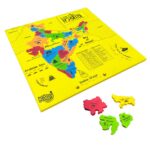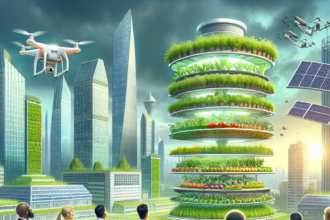The Future of Flavor: How AI is Revolutionizing the Food Industry
As technology continues to evolve, many aspects of daily life are being transformed, from how we communicate to how we shop. One sector that has seen remarkable innovation is the food industry, particularly in how flavor is developed, enhanced, and delivered. Artificial Intelligence (AI) is playing a pioneering role in this transformation, reshaping not only the way food is produced but also how we experience taste.
Taste Meets Technology
Historically, flavor production has relied heavily on human culinary skills, traditional recipes, and time-tested practices. However, the complexity of flavor profiles and the desire for consistency have pushed food manufacturers to seek advanced solutions. AI, with its ability to analyze vast datasets, make predictions, and suggest combinations, is now a crucial player.
One of the most exciting applications of AI in food is the ability to analyze existing flavors and predict consumer preferences. Through algorithms that utilize data from past purchases, trending recipes, and even social media interactions, companies can better understand what flavors are gaining popularity or falling out of favor. This capability not only allows for more informed product development but also gives businesses the agility to adapt quickly to shifting consumer tastes.
Flavor Creation and Innovation
AI is taking flavor creation to new heights through various methods. With deep learning algorithms, machines can generate new flavor combinations by analyzing existing ones. Software like Google’s “Project Minima” uses AI to identify how flavors interact at the chemical level. By examining millions of food compounds and their sensory profiles, AI can suggest entirely new flavor combinations that chefs may not have considered.
For instance, when researchers fed a neural network with data about ingredients and their flavor compounds, the AI proposed combinations that have led to the development of innovative recipes featuring unexpected pairings like chocolate and olive oil. This kind of innovation not only inspires chefs to experiment but also caters to an increasingly adventurous consumer base eager for unique culinary experiences.
Customized Nutrition
Another significant benefit of AI in the food industry is personalization. As consumers become more health-conscious, there’s a growing demand for customized nutrition that caters to individual dietary needs and preferences. AI can analyze a person’s health data, preferences, and even genetic factors to create personalized diet plans and meal suggestions. This approach ensures that consumers not only enjoy what they eat but also receive the nutrients their bodies require.
Companies like Nutrigenomix are already exploring this territory, combining genetic testing and AI to provide personalized dietary recommendations. This guarantees that flavor and nutrition come together, allowing individuals to enjoy meals tailored to their taste buds while benefitting their health.
Sustainable Food Practices
As we navigate a global food crisis exacerbated by climate change, AI is proving invaluable in promoting sustainable food practices. By analyzing agricultural data, weather patterns, and soil health, AI can help optimize crop yields while minimizing the environmental impact. Innovations like precision farming allow farmers to use resources more efficiently, enhancing crop flavors and reducing waste.
Additionally, AI in the food supply chain minimizes inefficiencies, helping to ensure that products reach consumers quickly and with minimal spoilage. Food companies can also utilize AI to optimize packaging and distribution, ensuring that flavors are preserved from production to consumption.
The Culinary Future
The intersection of AI and the food industry is ensuring a dynamic culinary landscape. As machine learning continues to improve, we can expect even more specific flavor profiles, innovative food pairings, and personalized dietary solutions. While AI might never fully replace the human touch in cooking, it undoubtedly provides chefs and food manufacturers with powerful tools to innovate and evolve.
FAQs
Q1: How is AI helping in flavor development?
AI analyzes vast datasets on consumer preferences and flavor compounds, allowing it to suggest innovative combinations that appeal to modern palate trends.
Q2: Can AI create new recipes?
Yes, AI can analyze current flavor profiles and ingredients to generate new, creative recipes that might not be intuitively considered by chefs.
Q3: Is personalizing food with AI a growing trend?
Absolutely! AI can analyze individual dietary needs and preferences to create personalized meal plans and recommendations, catering to health and taste.
Q4: How does AI support sustainability in the food industry?
AI optimizes agricultural practices by assessing data about yields and environmental conditions, promoting more sustainable farming methods and reducing waste in the supply chain.
Q5: Will AI replace chefs in the kitchen?
While AI can enhance food preparation and flavor innovation, it is unlikely to replace the artistry and intuition of human chefs. Instead, it serves as a valuable tool for enhancing culinary creativity.
In conclusion, AI’s potential to revolutionize the food industry is immense. As we look toward the future of flavor, the integration of technology may bring us closer to a richer, more flavorful, and sustainable dining experience.










